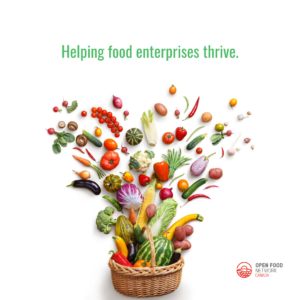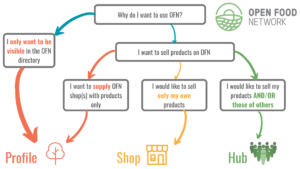Research report: Tech-Enabling On-line Food Distribution
This evaluation documents how, with support from the Ontario Trillium Foundation, Open Food Network Canada (OFN) used the Design Thinking process to tech-enable food and farming entrepreneurship in three different Ontario communities: a mid sized urban/rural community, a large urban community, and a primarily rural community. We helped 12 women develop and launch social enterprises that focus on sourcing and distributing local food and farming products. 
As communities and governments attempt to reinforce local food security, we think it is vital for all stakeholders to understand that digital platforms – far from a novel and optional ‘add-on’ to existing marketing methods – actually represent a critical ‘public infrastructure.
To read the full report click here.

Open Food Network is a free and open source software platform. Our content is licensed with CC BY-SA 3.0 and our code with AGPL 3.
We take good care of your data. See our cookies policy

0 Comments